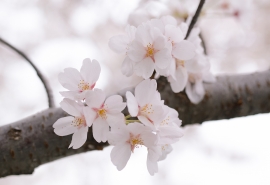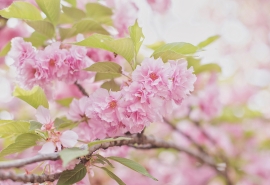
be glad to do 造句
如下:
1、Sure thing, I'll bewww.souquanme.com glad to do it for you.
当然,我很乐于为你效劳。
2、I'd be glad to do a good deed before I die.
我想在临死之前做件好事。
3、Not at all. I'll be glad to do it.
不,没关系。我很乐意帮忙。
4、All such educated young people who can go and work in the countryside should be glad to do so.
一切可以到农村中去工作的这样的知识分于,应当高兴地到那里去。
5、I'll be glad to do any minor alterations for you.
我很高兴给您做些小修改。
be glad that 造句 快啊!三句
both…and……are
very
glad
to
do
that!
i
am
very
glad
to
meet
you!
we
are
very
glad
to
meet
you!
he
is
always
glad
to
help
others.
他总是乐意助人。
i
am
very
glad
to
see
my
teachers
and
classmates
in
new
term.
我见到我的同班同学很高兴.
we
will
be
glad
to
attend.
我们很乐意去参加。
i'll
be
glad
to
show
you
everything.
我将很乐意向你们展示一切。
glad单词造句为什么很多都加to
因为词组glad to do sth
意思是 高兴做某事
glad什么意思中文
一、意思:
adj.高兴;愉快;感激;感谢;乐意;情愿;愿意
vt.使高兴
二、读音:英 [læd];美 [læd]
三、例句:
1、I'm glad I relented in the end
我很高兴自己的态度最终缓和了下来。
2、I can't tell you how glad I was to leave that place.
我无法形容自己离开那个地方心里有多高兴。
扩展资料:
词汇用法:adj. (形容词)
1、glad指由于某一特定的事或原因而“喜悦”,描写的是人高兴或快乐的情绪,也可用于对愉快或满意的感情的有礼貌的表达。
2、glad作“高兴的,欢喜的”解时在句中一般用作表语:接about表示高兴的原因,接at表示瞬间的喜悦,接nSgePhof表示高兴的心理的持续状态; 其后还可接由that/wh-引导的从句, that常可省略。
3、glad作“使人高兴的,令人快乐的”解时,在句中通常用作定语。
4、glad作“乐意的,情愿的”解时,其后常接动词不定式,意思是“乐意做某事”。当动词不定式的逻辑主体不是句子的主语时,该逻辑主体可由介词for引出,意思是“为某人做某事而感到高兴”。
5、glad作“高兴的”或“使人高兴的”解时,比较级和最高级有两种形式:分别为gladder/more glad和gladdest/most glad; 作“乐意的,情愿的”解时,没有比较级和最高级。
6、glad在构成比较等级时,过去习惯上采用分析式,即more glad, most glad。现在则常见gladder和gladdest。
7、glad可被very修饰, gladder则要用much来修饰。
glad什么意思
[^lAd]
adj.
高兴的, 乐意的, 感到高兴的
glad
glad 1
AHD:[gl²d]
D.J.[gl#d]
K.K.[gl#d]
adj.(形容词)
glad.der, glad.dest
Experiencing or exhibiting joy and pleasure.
高兴的,快乐的:经历或展示出快乐和高兴的
Appreciative:
感激的:
was glad of the fire's warmth.
非常感激火的温暖
Providing joy and pleasure:
提供快乐和高兴的:
a glad occasion.
令人高兴的场合
Very willing; pleased:
非常乐意的;非常满意的:
glad to help.
愿意效劳
Bright and cheerful:
充满光明和快乐的:
a glad May morning.
一个明媚喜人的五月的早晨
Archaic Having a naturally cheerful disposition.
【古语】 个性开朗的:有自然愉快的天性的
v.tr.intr.(及物动词和不及物动词)
glad.ded, glad.ding, glads【古语】
To gladden.
使高兴
Middle English
中古英语
from Old English glæd * see ghel- 2
源自 古英语 glæd *参见 ghel- 2
glad“ly
adv.(副词)
glad“ness
n.(名词)
glad, happy, cheerful, lighthearted, joyful, joyous
These adjectives mean being in or showing good spirits.
这些形容词意指处于好的精神中或表现出好精神:
Glad often refers to the feeling that results from the gratification of a wish or from satisfaction with immediate circumstances:
Glad 经常指由于愿望的满足而产生的或是对直接的周围环境满意而产生的感觉:
is gwww.souquanme.comlad of her success;
为她的成功而高兴;
was glad he had seen her.
非常高兴他已经见到她了;
“Some folks rail against other folks, because other folks have what some folks would be glad of” (Henry Fielding).
“一些人抱怨另一些人,因为另一些人拥有他们为之高兴的事物“ (亨利费尔丁)。
Happy applies to a pleasurable feeling of contentment, as from a sense of fulfillment:
Happy 适用因满足而产生的舒适感觉,如来自于愿望实现后的一种感觉:
“Ask yourself whether you are happy, and you cease to be so” (John Stuart Mill).
“问问你自己你是否快乐,然后你停止那样做” (约翰斯图尔特米尔)。
Cheerful suggests the good spirits characteristic of a person who is//www.souquanme.com pleased with something or who has a naturally outgoing nature:
Cheerful 表现因某物而高兴的人或有性格开朗天性的人所具有的好的精神特征:
She was as cheerful as anyone confined to a hospital bed could be.
她和其他任何一个被限制在医院病床上的人一样快乐。
Lighthearted stresses the absence of care:
Lighthearted 强调缺少关心:
“He whistles as he goes, lighthearted wretch,/Cold and yet cheerful” (William Cowper).
“他边走边吹口哨,无忧无虑的小家伙/寒冷但仍然很高兴“ (威廉姆考珀)。
Joyful and joyous suggest lively, often exultant happiness:
Joyful 和joyous 暗示生动的,经常是狂喜的高兴:
a joyful heart;
狂喜的心;
a joyful state of affairs;
事情的欢欣鼓舞的状态;
joyous laughter;
快乐的笑声;
joyous news.
令人高兴的新闻
glad
glad 2
AHD:[gl²d]
D.J.[gl#d]
K.K.[gl#d]
n.Botany (名词)【植物学】
A gladiolus.
菖蒲,剑兰
glad
来自古英语glaed,德语的glatt平滑的
glad,happy,cheerful这三个形容词的一般含义是“高兴的”。
glad是礼貌待人中用来表示“高兴的”惯用词。在这个意义上,glad与happy很难说有多大差别。如:I was glad to receive your letter and I am equally happy tonSgePh be writing back to you again.
I'glad to have seen you. 结识了你很高兴。
告别时时用语)
I"m so glad that you were able to come to this party.
你能设法抽空出席这个交际会,我很高兴。
He seemed to be very glad of your success.
他对你的成功显得很高兴。
This is the gladdest day of her life.
这是她一生中最愉快的一天。
但是happy的内涵是“满足”
We'll be very happy to accept your kind invitation.
能接到你友好的邀请信我们将非常高兴。
They are now leading a very happy life.
他们现在过着幸福的生活。
Happy New Year!
新年快乐!
cheerful表示比较强烈的快乐感情,而且这种感情的流露是自然的,或情不自禁的
This festival is a cheer ful occasion.
这个节日是个欢乐的时节。
Though they are running out of food and drink,the men are cheerful.
虽然他们的食物和饮料就要用完了,但是他们很高兴。





